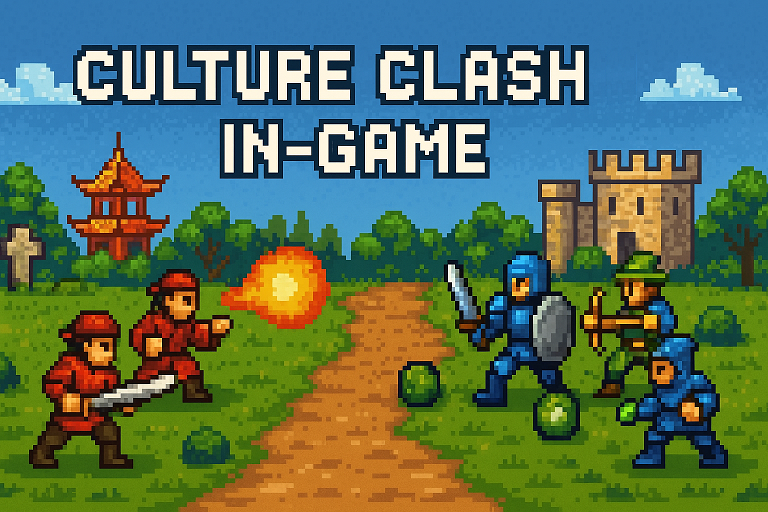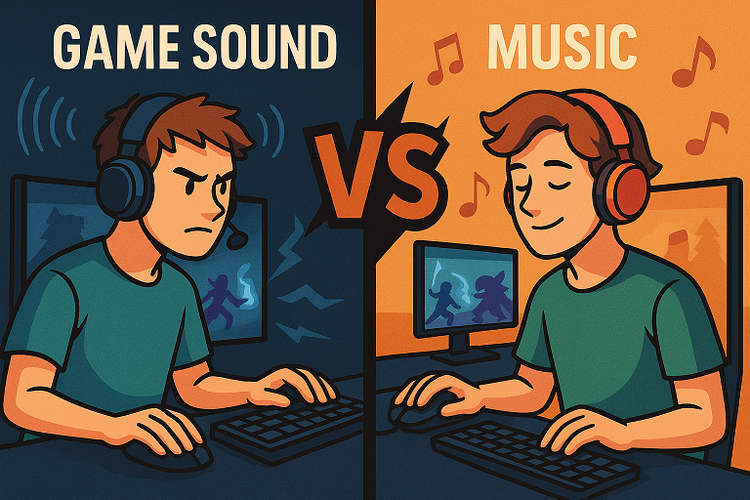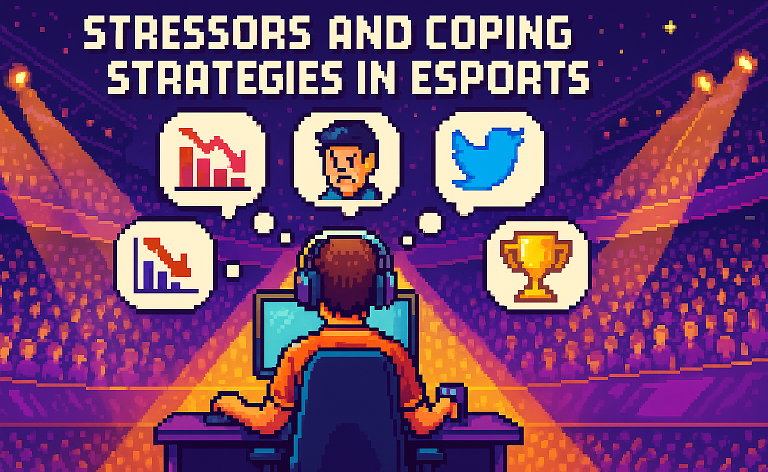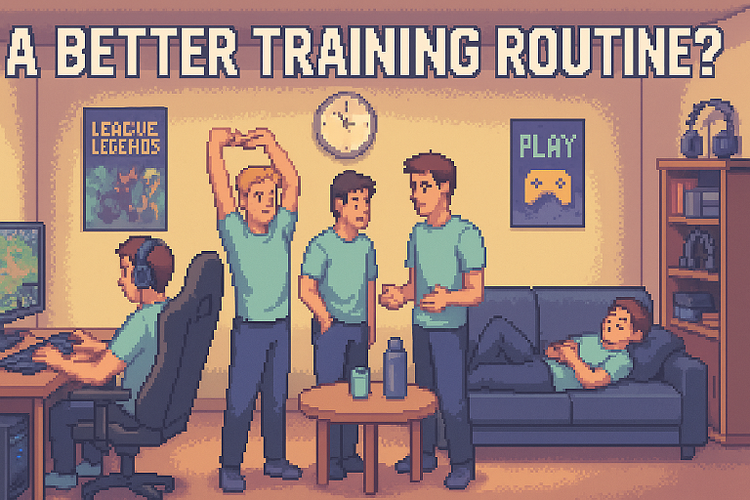Brain Stimulation & Performance in CS:GO
We discuss how to improve performance and motor skills using brain stimulation in Counter-Strike esports players.
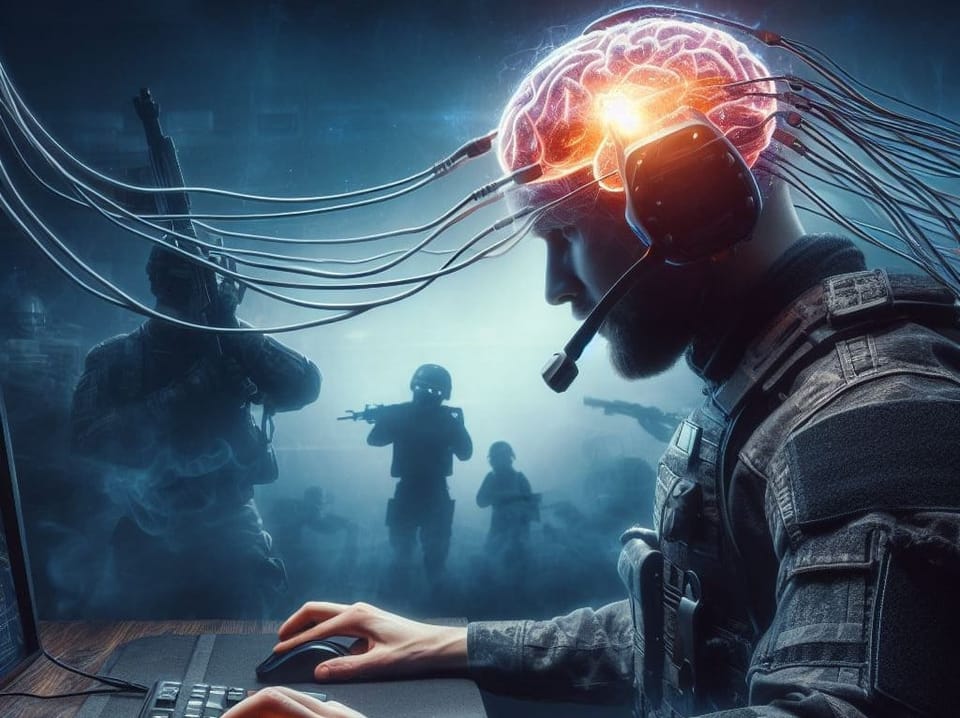
Hi friends.
For this episode, we will step a bit outside the usual realm of training and other things one can do to enhance abilities, and in turn in-game performance. The paper we’ll talk about this week is on how to improve gaming performance using neurostimulation on players with different skill levels. It specifically focuses on one important aspect of CS:GO – motor skill.
For this episode, we will step a bit outside the usual realm of training and other things one can do to enhance abilities, and in turn in-game performance. The paper we’ll talk about this week is on how to improve gaming performance using neurostimulation on players with different skill levels. It specifically focuses on one important aspect of CS:GO – motor skill.
📜 The Study – CS:GO, Purpose, Participants
As all of you probably know, FPS games, and hence CS:GO, are very demanding when it comes to motor skills, meaning…
„[…] precise motor control of the hands and arms to operate a controller (console-based games), or a mouse and keyboard (PC-based games) […]“ – Toth et al., 2021
Toth and colleagues in their study from 2021 were interested in how neurostimulation may increase flick skill learning and performance. For this, they used tDCS (transcranial direct current stimulation) where people get to wear a headband with small electrodes on it. Then, a small electric current is passed through it into your brain, stimulating the neurons in that area (see the picture below).

For the experiment, the researchers had 149 students participating. Using students makes sense for the study because they have different skill levels (Silver 1 to Global Elite, and non-gamers), making it possible to see different rates of improvements. The training the students underwent lasted for 6 days.
📈 Did it work?
First, what was clear after analyzing the data was that players of different skill levels had different performance results in the flicking tests. High skilled players (Gold Nova Master to Global Elite) did better on the test than low skilled ones (Silver 1 to Gold Nova 3), who, in turn, did better than the non-gamer group. This finding…
“[…] indicates that the motor skill of flicking can differentiate FPS expertise.” – Toth et al., 2021
A second result of the study was the training effect they found. After day three, all groups showed a significant improvement. That’s not very surprising though. When you train something, it’s highly likely that you’ll improve on it. The third and last result regards the effect of tDCS on performance. Interestingly, only one out of the three skill level groups improved their performances.
“We found that training with tDCS was significantly more beneficial for improving performance compared to training alone specifically for our Non Gamer sample only.” – Toth et al., 2021
💡 As I explained in an earlier episode, similar to traditional sports, time is crucial. As a young, aspiring player who wants to become an Esports pro, the earlier you start and the faster you progress, the better. This study suggests that at least one crucial skill for FPS games (motor skill) can be boosted by training with tDCS as a novice player.
Unfortunately, we don’t have longitudinal studies at hand to see if other groups (skill level-wise) could improve as well over a longer period of time. Maybe training including tDCS boosts performance of players on a higher skill levels too, but the effects only show after a month or so.
Second of all, the average household doesn’t have the device laying around or the knowledge to use it. Hence, this really isn’t an option. However, it also shows (once more), that (non-)gamers lacking skills in a particular area are faster to acquire them. As an implication for all players – casual to professional – focusing on the areas you may lack the most can benefit you the most. The reason is a steeper learning curve and hence faster progression.
Hope you all enjoyed this episode. See you next week.
Christian 🙃
Join over 250+ (🤯) Gaming Science subscribers and become smarter every week.
"I love this type of content, thank you Chris."

